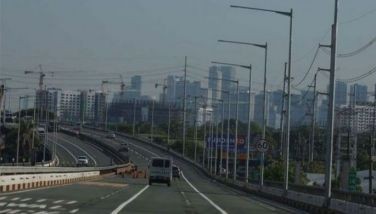Senate to probe Baguio City's 'decay'
BAGUIO CITY, Philippines – A Senate probe is underway on the purported “decay” of this upland city, the country’s vacation and summer capital.
“We have to ascertain some things that must be proven if indeed there is decay,” said Sen. Rodolfo Biazon who led a public consultation here last Friday.
An earlier newspaper account (not in The STAR) painted a debilitating image of Baguio, prompting Sen. Miriam Santiago to file a resolution calling for the probe.
The city is dear to Biazon, who had spent four years at the Philippine Military Academy as a cadet and more than a year as its superintendent.
He said indicators of the city’s supposed “decay” must first be observed.
One important indicator, Biazon said, “is to ask if Baguio is suffering from depopulation.”
Although Biazon believes otherwise, the city – built a century ago for only 25,000 people – now has at least 300,000 residents.
Environmental, water, land use and tenurial issues have hounded the city for years, and recently, garbage disposal.
Biazon said the government must ascertain if Baguio has undergone economic restructuring “for better or worse.”
“Are there abandoned buildings? Is there high local unemployment? Is there political disenfranchisement?” Biazon asked, saying these indicators, along with rise in criminality, are internationally accepted barometers to ascertain urban decay.
“The city and its people must determine what should be done. It should (involve a) concerted effort, including the national government,” he said.
Biazon took cognizance of the “metropolitanization” of Baguio through the Baguio-La Trinidad-Itogon-Tuba-Sablan (BLIST) concept, patterned after the Metro Manila model.
The BLIST concept, hatched way back in the 90s, aims to decentralize development in the city.
“It will be up to the people of Baguio what they want for their city,” Biazon said.
Rep. Mauricio Domogan has filed a bill in Congress seeking amendments to Baguio’s almost a century-old charter to address issues on land and tenurial rights, resources and boundaries.
The measure has reportedly been passed on second reading, but critics, especially urban poor dwellers, have misgivings on the power of the city executive especially on deciding issues on land and tenurial rights.
- Latest
- Trending


























